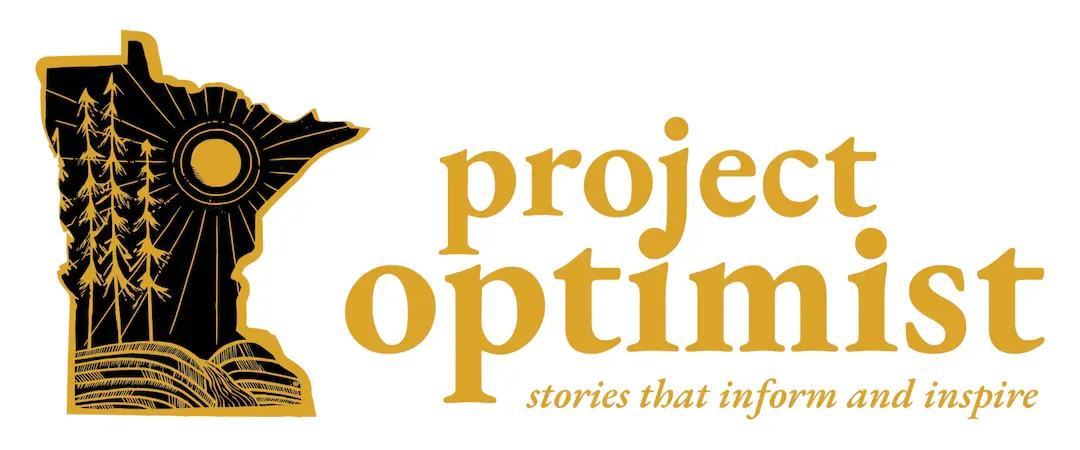Worthington artist and mental health advocate channels Mother Nature for latest sculptures
The founder of southwestern Minnesota nonprofit Creative Healing Space always hated to see litter on the ground. Now she has two pieces that embody the pain and resilience of the earth.

Suree Sompamitwong, a 29-year-old artist, created her latest piece to embody feminine energy and Mother Nature’s pain and dexterity.
“This is a representation of my viewpoint toward the world and its treatment of nature; I’m an empath and I feel deeply for both the environment and the empowerment of women worldwide,” Sompamitwong said. “Women and Mother Nature have a bunch of things in common but their main similarity is the ability to create beautiful life.”
As a child, Sompamitwong said she was so overprotective of the environment that if anyone littered, she’d get upset about the mess. As an adult, she feels people should take ownership and do their part in caring for the world because “little victories'' can change our communities.
Global climate change is in effect, but Sompamitwong is optimistic that we’ll take action for the “betterment of our Earth” because our future and future generations' lives depend on it.
Sompamitwong is an artist extraordinaire, poet, art-and-environmental activist, and most recently sculptor of her two installations – “Emelia,” AKA “Healing is Living,” a name meant to evoke feminine benevolence. The other piece called “Alexia,” or “I Can’t Breathe,” represents “the overconsumption of natural resources, the greedy capitalist, the society who takes until something dies or is depleted,” she said.
Sompamitwong received a $1,000 grant from Southwest Minnesota Arts Council to help fund her creation of “I Can’t Breathe.”
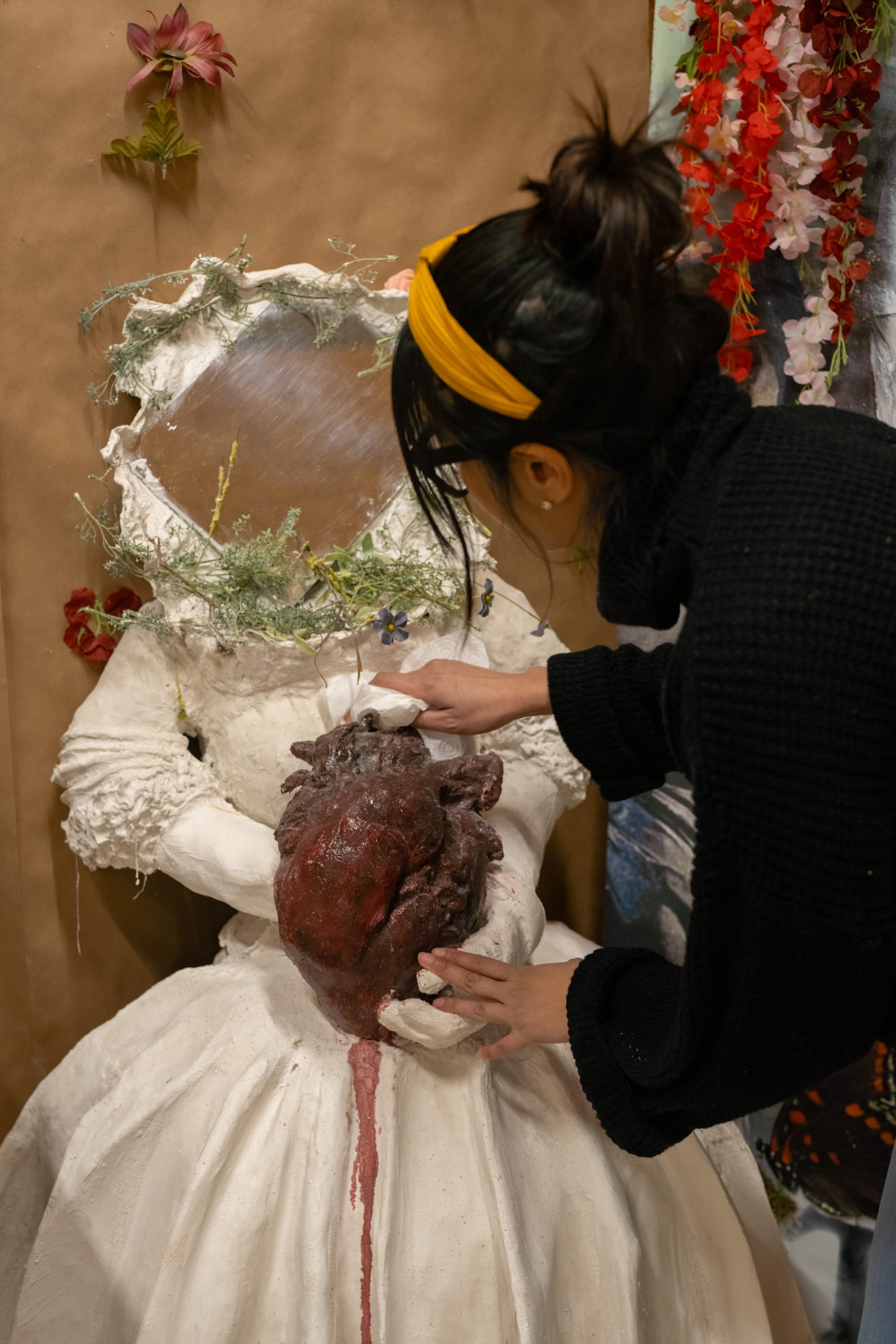
Emelia and Alexia are five feet tall, dress-wearing sculptures with uncannily shaped heads, made from plaster strips, a white material that gives them a crinkly, haunting disposition similar to the puppet nurses in the “Silent Hill” film. Emelia holds a red, bulging, bleeding heart, twice as large as a human’s heart. Alexia is wrapped in barbed wire from her neck as it spirals downward on her dress, a symbol for “environmental issues and the barriers she has and will face.” She also clutches a wooden ball, a representation of Earth with flowers placed gently underneath. On the other hand, both sculptures also represent the beauty in womanhood and nature as there appears to be a delicate softness to them despite their rough nature.
Both sculptures have mirrors instead of faces so that a viewer can look at them and see their own reflection.
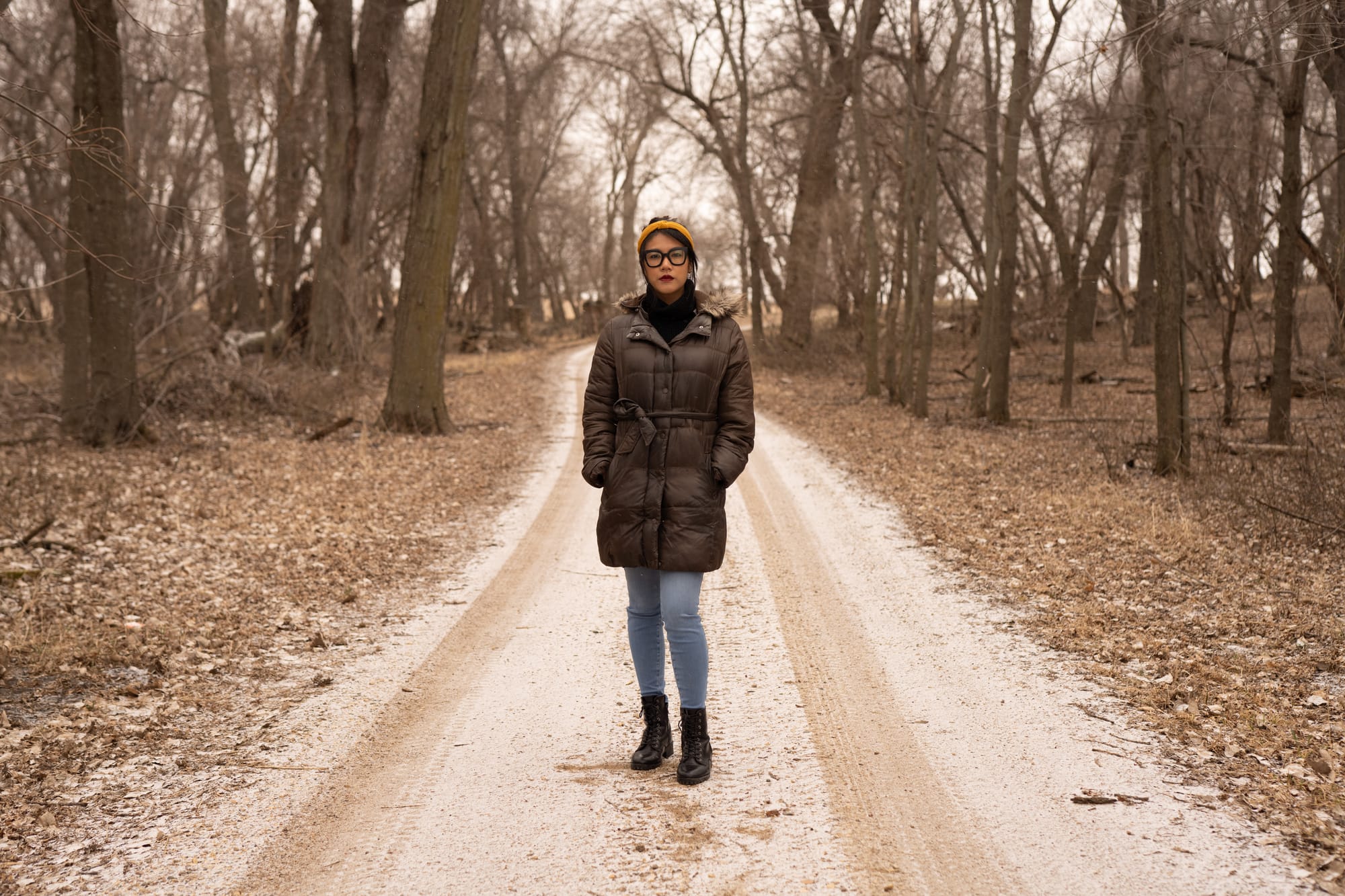
“I think we have a responsibility to care for Earth because it’s a beautiful place that we should want future generations to inherit, enjoy, and inhabit,” Sompamitwong said.
Sompamitwong began integrating natural elements into her art in 2018. Though this was two years prior to the opening of Creative Healing Space, her art therapy nonprofit, she’s thankful for the life that led to her connecting art with her personal life.
A consistent naturalist, when she isn’t creating art, Sompamitwong picks up garbage outside, recycles, and uses sustainable resources when creating clothing pieces, refusing to participate in the destructive fast fashion industry.
Sompamitwong said she loves to immerse herself in nature by hiking, meditating outside, and swimming in virtually all bodies of water: lakes, rivers, waterfalls, and oceans.
“Art is important to me because it allows me to channel my energy and raw emotions of anger or grief in effective ways, in a safe space,” she said.
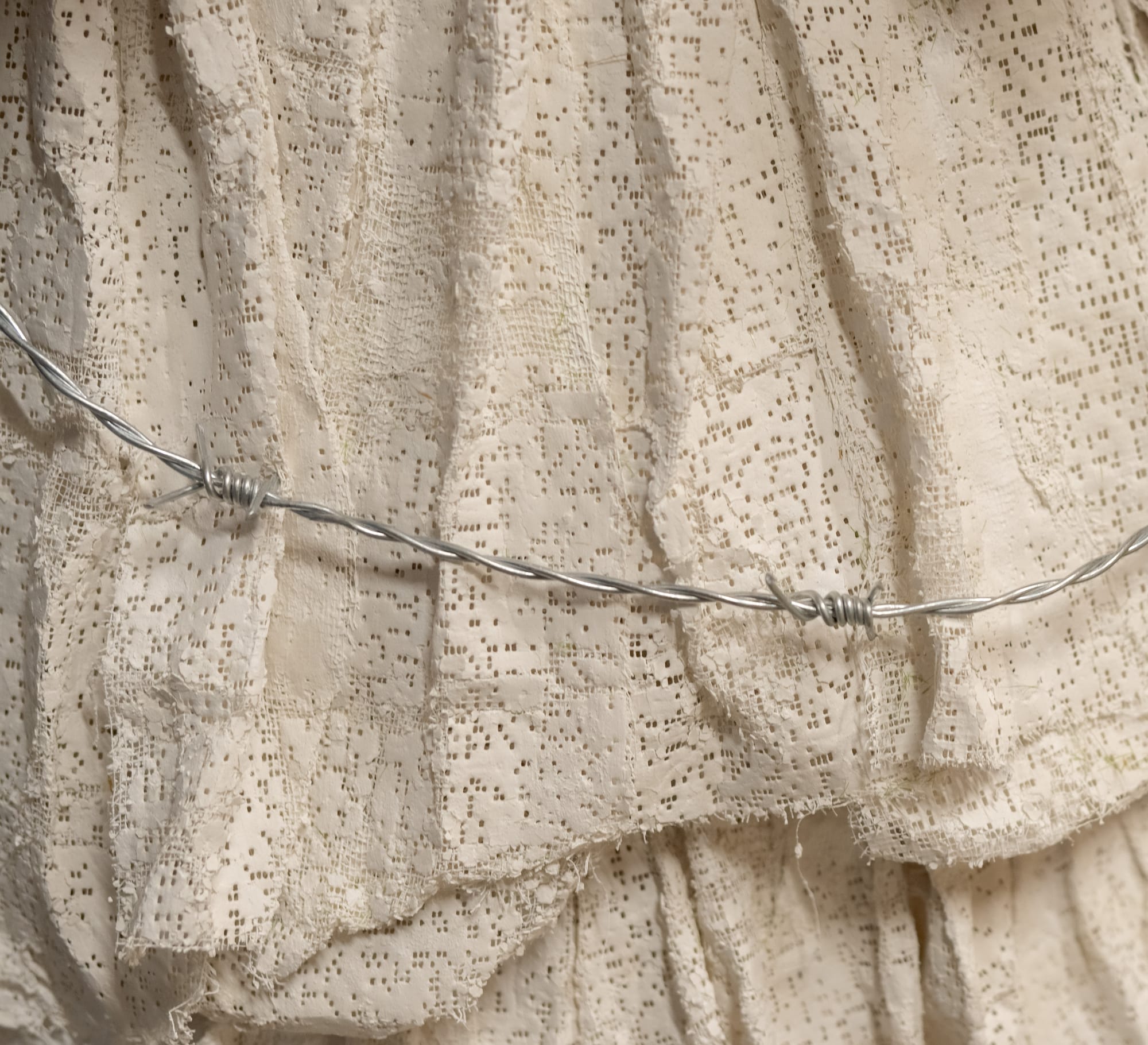
Suree: Founder and director of Creative Healing Space
The common and consistent themes revolving around Sompamitwong’s art are the lingering effects of mental illness and how she reconciles with the fact that she’s a creative living with bipolar disorder.
Born in Thailand, Sompamitwong’s family won the visa lottery, which allowed them to move to Los Angeles while she was 7, where they lived for one year before moving to Worthington, Minnesota, their current home.
At a young age Sompamitwong created sketches of clothing silhouettes as she aspired to become a fashion designer. She moved back to Los Angeles at age 19 to pursue a career in fashion design and successfully worked up to a job as a creative director for Monoreno, which closed in 2018.
She returned home following a mental breakdown and hospitalization, and she was diagnosed with bipolar disorder in 2017. It’s something she struggled to grasp and accept in those early years of her diagnosis, she said.
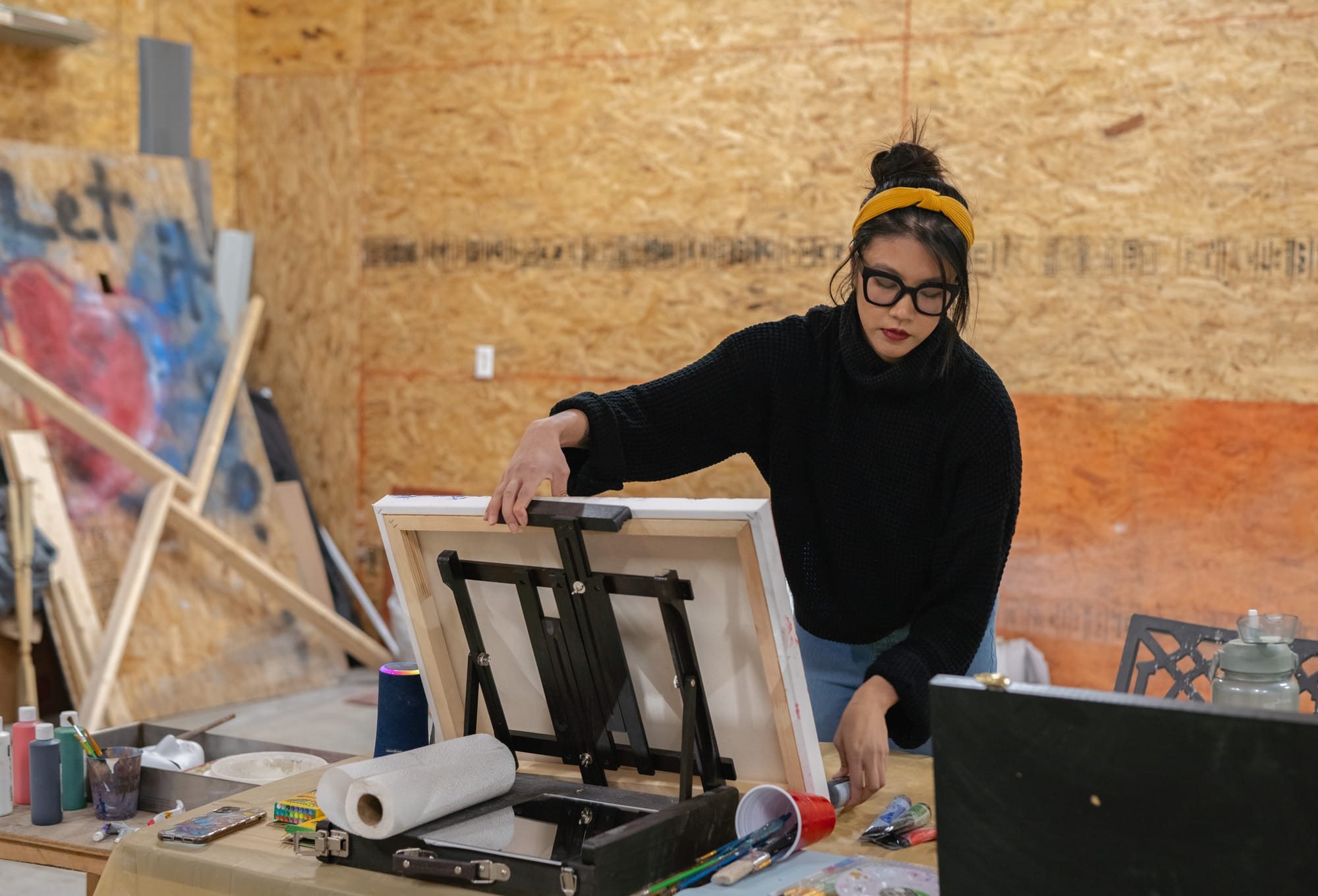
Shortly after returning to the Midwest, Sompamitwong enrolled in Minnesota West Community and Technical College, where she began painting and sculpting and discovered the tranquil experience that creating brings.
Sign up for Project Optimist
Arts, environment, and community news
Once a week. Original, fact-checked journalism.
Sompamitwong said she created art in college because it helped her through personal hardships and gave her an outlet to accurately convey her thoughts and emotions. She credits her art instructor, Leah Gossom, with giving her the freedom and support to create what she needed to create. This healing environment inspired Creative Healing Space.
Sompamitwong sold her pieces for up to $350, and she was surprised by the support. It became the seed money to jumpstart her nonprofit.
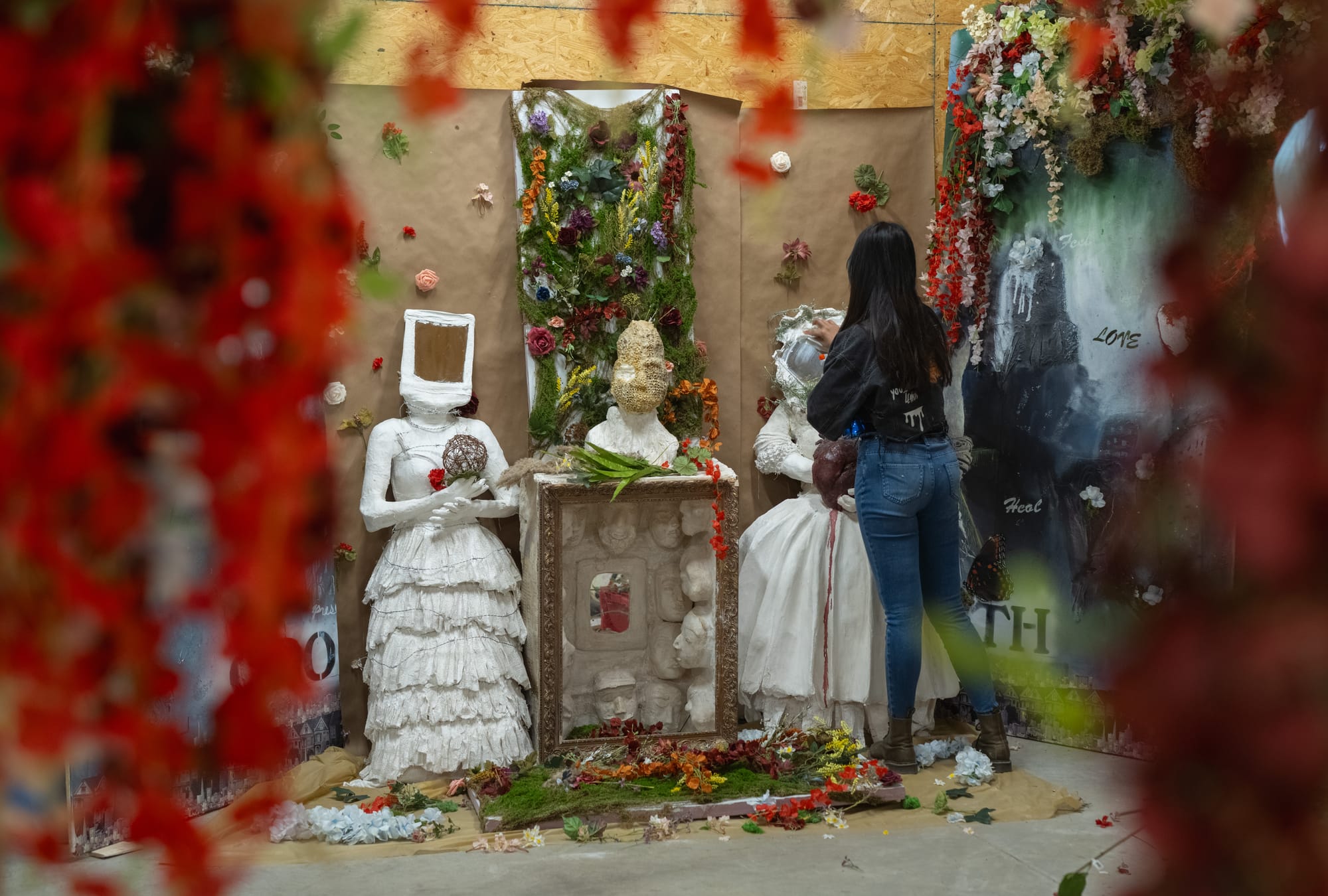
In 2020, Sompamitwong’s dream became a reality when she founded Creative Healing Space, a nonprofit that offers art therapy, artist workshops, and presentations. It is “intentional in supporting mental health and healing while fostering creativity and community,” she said.
Creative Healing Space is a safe space for Black and Brown people in the community, the LGBTQ+ community, and immigrant families in Worthington, Minnesota, and the surrounding southwest communities.
“This is my life’s work and at the time I felt like there was a shortage of creative outlets for people struggling with mental health,” Sompamitwong said. “So I thought I’d create a space for people to gather and create together that’s intentional for healing.”
Eventually she wants to go to graduate school to become an art therapist, because she’d like to provide therapeutic services to people in need, similar to the work that her nonprofit provides.
Her artwork and poems are online at SincerelySuree.com.
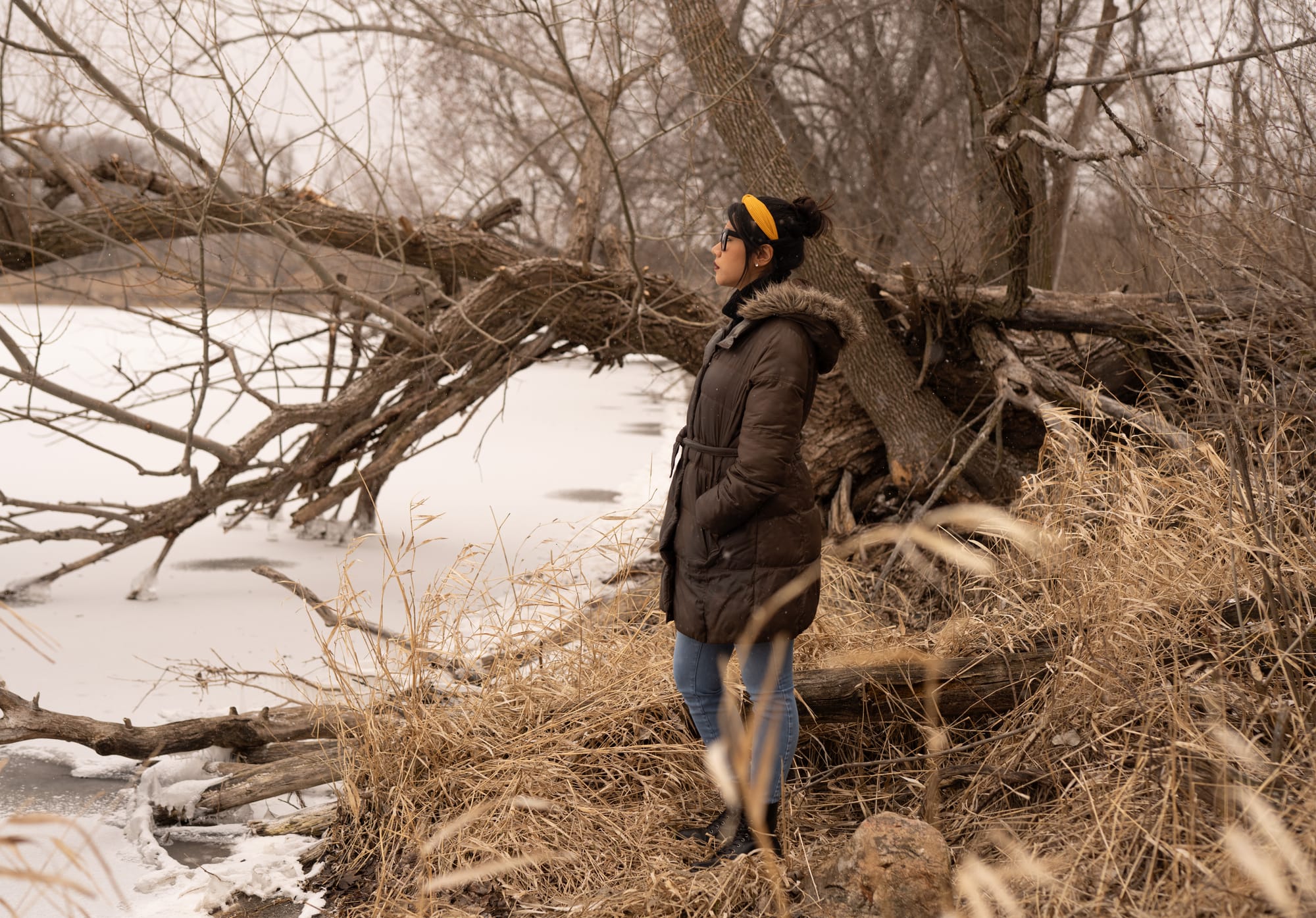
Editor's note: Suree Sompamitwong and Project Optimist Founder Nora Hertel, who edited this story, know each other through the Initiators Fellowship program. Sompamitwong is a current fellow. Hertel was a fellow in the previous cohort.
This piece is part of Project Optimist's Biophilia series about nature and design. It's supported by a grant from Arts Midwest. Learn more here.
